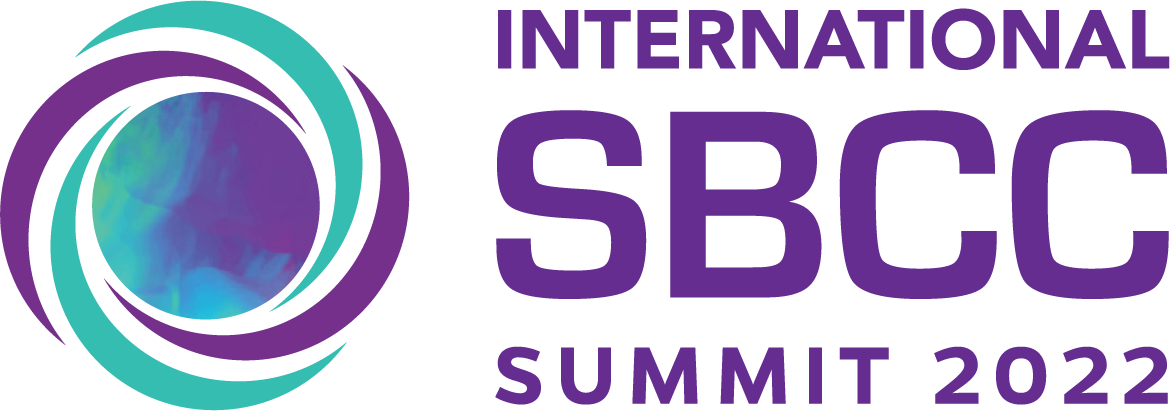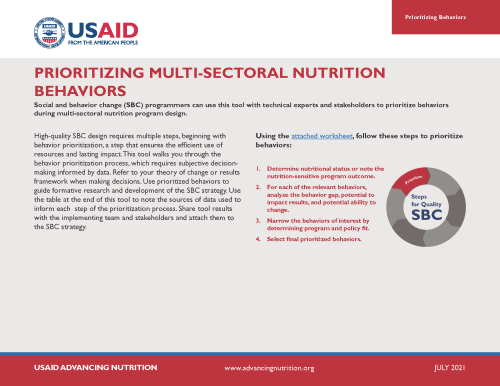Leaders in SBCC and related fields from around the world shared their insights and reflections during these informative sessions during the 2022 International Social and Behavior Change Summit in Marrakech, Morocco December 5-9. Sessions were recorded in English, French, Arabic and Spanish (unfortunately technical difficulties prevented an English recording on Dec 5 .)
Extract of the programme:
As producers and policymakers improve the equitable supply of nutritious food, social and behavior change (SBC) practitioners have a critical role to play in increasing demand for healthy diets and food. This requires expanding and refining approaches to create the desire for nutritious foods, which people grow, purchase, and eat.
Proven marketing techniques from the private sector can accelerate the impact of SBC activities to better generate demand-and reduce the inequities-in underserved communities. SBC practitioners use many of the best practices already, such as formative research to understand the audience, but they could do more with these marketing techniques, such as identifying key insights to inspire change.
This session shared perspectives about approaches, challenges, and opportunities for developing leadership skills for SBC among their peers, local colleagues, government actors, and young professionals, drawing from their experiences working in SBC, capacity strengthening, and nutrition and other sectors. Dec. 8, Less is More: Prioritizing Behaviors for Effective Multi-Sectoral Nutrition SBC # 8 p.
Dec. 5, What Works in Nutrition SBC?
SBC is fundamental to achieve global and national nutrition goals. Nutrition SBC requires applying best practice and innovations, while understanding what is unique about nutrition. This interactive session shared, discussed and combined SBC resources for use in development and humanitarian contexts, developed by USAID Advancing Nutrition.Dec. 6, Generating Demand for Healthy Diets: Practical Lessons from Private Sector Marketing
As producers and policymakers improve the equitable supply of nutritious food, social and behavior change (SBC) practitioners have a critical role to play in increasing demand for healthy diets and food. This requires expanding and refining approaches to create the desire for nutritious foods, which people grow, purchase, and eat.
Proven marketing techniques from the private sector can accelerate the impact of SBC activities to better generate demand-and reduce the inequities-in underserved communities. SBC practitioners use many of the best practices already, such as formative research to understand the audience, but they could do more with these marketing techniques, such as identifying key insights to inspire change.
Beyond the Margins!! A Conversation within and across the Regions in the South
Speakers: Ms. Dorina Andreev-jitaru, UNICEF Regional Office for South Asia Jair Vega Casanova, Universidad del Norte Sara Nieuwoudt, School of Public Health, University of the Witwatersrand (South Africa) Moderators: Mrs. Adelaida Trujillo, Citurna & Imaginario, The Communication Initiative Latinamerica Mrs. Ana Carrapichano, MediologyDec. 7, Adapting High-Quality Illustrations from the IYCF Digital Image Bank
Dec. 8, The Keys to Quality SBC from Start to Finish: Practice with Nutrition
Quality SBC, from design to evaluation, is a critical element for any effective multi-sectoral activity. USAID, with partners, including UNICEF, prepared a workbook for program planners and practitioners to understand and work through the complexities. It presents a stepwise process for designing, implementing, monitoring, and evaluating high-quality SBC through the lens of complementary feeding.Dec. 8, Supporting Local Leadership Skills Development for Social and Behavior Change
Dec. 8, Less is More: Prioritizing Behaviors for Effective Multi-Sectoral Nutrition SBC # 8 p.
A donor’s perspective on prioritizing behaviors in multi-sectoral programs and how this works in practice.
Resource:
USAID (21021) Prioritizing Multi-Sectoral Nutrition BehaviorsThis session shared a donor's perspective on prioritizing behaviors in multi-sectoral programs and an implementing partner's perspective on how this works in practice. Following internal mid-term evaluations of USAID country activities, we developed a practical tool to prioritize behaviors. Programs in Kenya, DRC, and Mozambique user-tested and refined the tool. For donors, lessons include the need to support programs to prioritize behaviors through improved processes at the proposal and award stages as well as in SBC strategy design and implementation. For program implementers, learning is about how to reflect national priorities in the prioritization process, and how to facilitate decisions within program teams and with stakeholders.



No comments:
Post a Comment